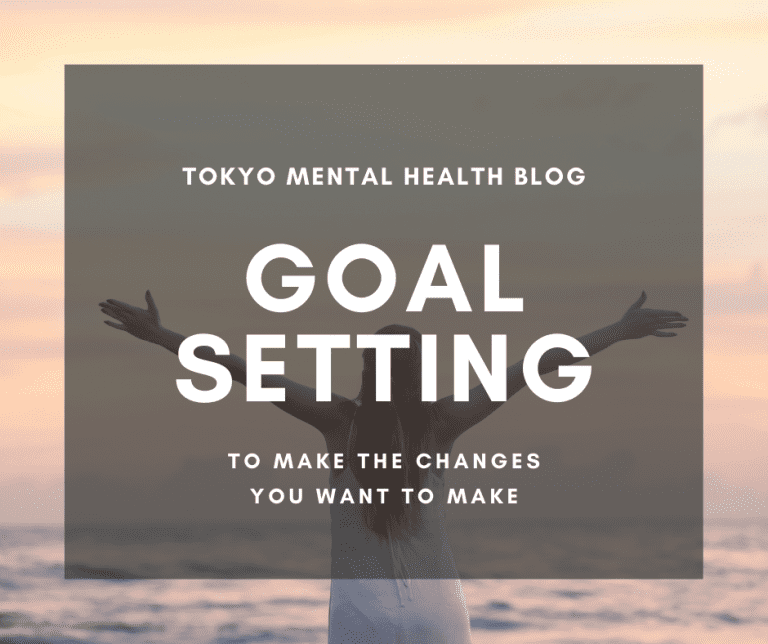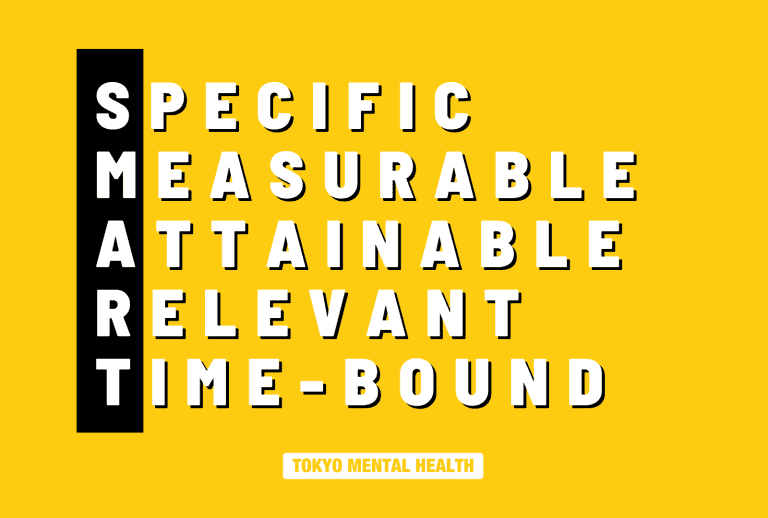- 2022/02/10
- Self Help & Tips

Although the beginning of the year is a time when many people reflect on their personal goals, don’t worry if you missed out on thinking through some New Year’s resolutions. While we may feel pressured to do so when the New Year rolls around, goal setting is an important activity that you can undertake at any time of year, not just on January 1st. Whether you are at a big point of transition in your life or you find yourself feeling bored, restless, or dissatisfied with your current personal or professional situation, goal setting can be an important tool in helping you make the changes you want in your life.
Why Goal Setting is Important
Though simple and much talked about on its surface, goal setting is an important practice that can help us build meaningful skill sets vital to our mental and emotional health, including the ability to introspect. The process of goal setting helps us get in touch with and identify how we feel, what we want from life, and what we need to help us feel more fulfilled. Other benefits of goal setting include:
- Helping build confidence and self esteem. When you’ve laid out your goals clearly and ahead of time, it becomes easier to recognize when you’ve accomplished something that you’ve set out to do.
- Assisting you in organizing your thought process. It can be stressful to feel overwhelmed by all of the tasks you need to accomplish to achieve your goals. Writing out your goals can give you a clearer sense of what needs to be done (and what you’ve already accomplished!) in pursuit of your goal.
- Keeping you resilient and adaptable during setbacks. Sometimes difficulties arise that can prompt you to re-examine your goals or make adjustments to your plan. Writing out plans ahead of time can make it easy to go back, revisit and adjust your goals as necessary to fit your new situation, and remind you of your motivations for pursuing it in the first place.
- Reconnecting you with your purpose. If you are confused about your future or what you want out of your life, sitting down and doing intentional goal-setting can help you clarify what is important to you, what your vision of the future is, and what steps you need to achieve that.
Goal Setting Tips
One of the most common methods used for goal setting is using the “SMART” goals strategy. While often used in educational and professional settings, this method can also be applied to setting personal goals. Each letter in the acronym “SMART” stands for the factors you should consider when setting goals. According to this strategy, goals should be:
- Specific. Be as specific as you can about what you want to accomplish. Include who may be involved in helping you achieve this goal, why it is a goal of yours, what obstacles you currently face to achieving it.
- Measurable. Think through how you plan to measure your progress towards your goal. This will help you to stay on track, notice when a setback occurs, and determine when you have actually achieved your goal. Knowing where you are in the process of reaching your goal will also help you communicate your progress with others when you are asking for support.
- Attainable: Determine what skills, resources, or people you may need to reach your goal. Do you have them already, or will you need to find ways to get them in order to reach your goal?
- Relevant (and Realistic): Does this goal make sense with your other goals and values? Does it line up with your overall vision of your life? Is it realistic enough to be achieved? If not, identify what part of the goal is unrealistic. Is there help you can enlist or an adjustment you can make so it can be more realistic?
- Time-bound: Set a time period within which you want to accomplish your goal. Does it already come with a deadline? Or is the deadline arbitrary, and you have to set it yourself?
For more practice with SMART goals, try out this worksheet from the University of California to help you organize your thoughts. If the SMART framework doesn’t resonate with you or isn’t helpful, try looking at other goal setting frameworks or this list of goal setting resources and inspiration from Purdue University.

Starting Small
While it can be tempting to focus only on bigger “stretch” goals that result in larger changes to your life (and generally take longer to achieve), setting small goals can be just as important. In fact, setting small, attainable goals for daily life can help you break down larger-scale goals into achievable steps, as well as provide benefits for your mental and physical health.
For example, if one of your bigger goals is to get in better physical shape, identify a small daily goal that can help. This can be something like doing at least 10 minutes of walking or gym time every day. By doing this, you benefit not only by getting a sense of progress towards your larger goal, but also by engaging in an activity that directly benefits your physical and mental health on a daily basis.
Find Support and Follow Through
Though it can be easy to think of goal setting as an individual process, finding support among family, friends, health professionals, and colleagues can provide important assistance in staying motivated, accountable, and on track.
If you are having trouble staying focused on your goals, need additional support to reach them, or are struggling to find a new direction and set goals, speaking with a counselor or psychologist may be of assistance. Please feel free to reach out to Tokyo Mental Health to book an appointment for this or any other mental health concern you may be experiencing.